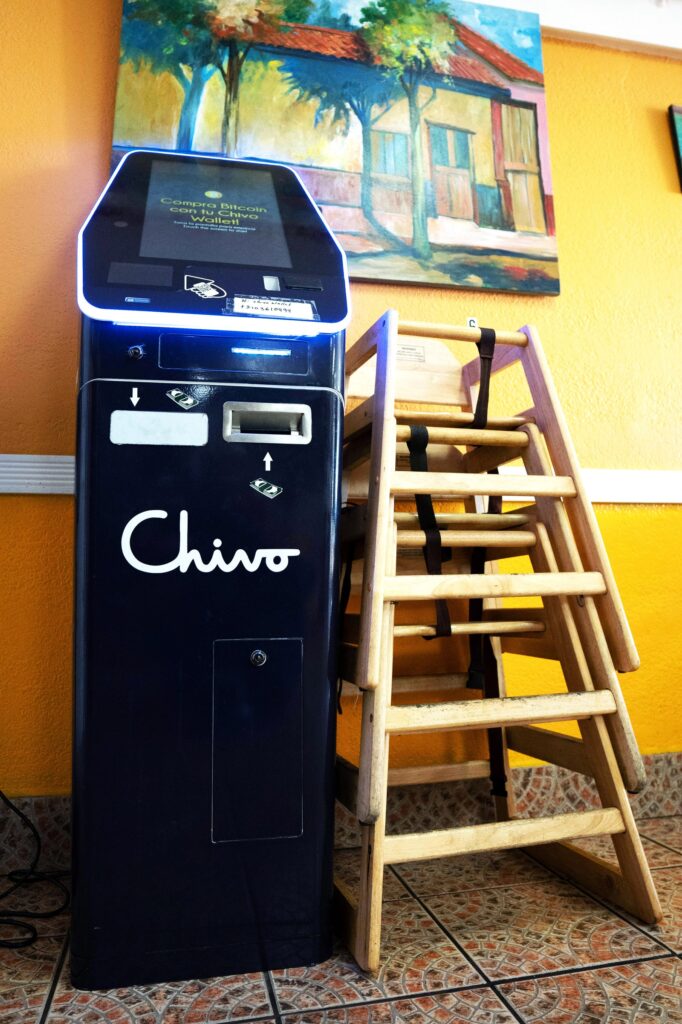In early June, a prerecorded video informed citizens of El Salvador that they were about to participate in a grand experiment. The speaker was Nayib Bukele, the country’s 40-year-old president, who declared that he had a plan for a better future: Bitcoin. The cryptocurrency would become legal tender in the country, he said—a global first that would elevate it to the same legal status as the US dollar, El Salvador’s national currency since 2001. This would help the jobless, he added, and those left behind by banks. But for a plan meant to help struggling Salvadorans, they were conspicuously absent; Bukele wasn’t even speaking Spanish. Instead, the message was played for a cheering crowd of international Bitcoin enthusiasts at a conference in Miami.
In the capital of San Salvador, Mario Gomez, a charismatic, 36-year-old software developer and founder of a “hacker space” for fellow coders, was skeptical. “I’m not completely convinced of everything that these people are selling,” he explained later. A fan of open source technology, he does not consider himself an enemy of Bitcoin, but he was troubled by how the government seemed to be foisting bitcoin on its people. So he took to Twitter. Over the subsequent weeks, his criticism of the plan grew in volume, as did his following.
A Chivo ATM for El Salvador’s national Bitcoin app in Oakland, California.
Photograph: Cady VogeOn August 31, Gomez tweeted several leaked slides of an app called Chivo, the government’s upcoming Bitcoin wallet, along with critiques. The next morning, he was driving his mom to work, as usual, when he was pulled over by the national police. There was a problem with his car, the officers told him, though they wouldn’t tell him what the problem was. Gomez recalls feeling more confused than terrified. He quickly typed a message to his roughly 8,000 Twitter followers before the officers confiscated his phone. His mother took a photo of him loaded into the bed of a police truck, which took him to a nearby station and then to another, where he says he was denied access to a lawyer. Meanwhile, a protest grew on Twitter demanding his release. Six hours later, the authorities let him go.
The Salvadoran police have since said Gomez is being investigated for unspecified financial crimes, though no charges have been filed. Gomez and lawyers from Cristosal, a human rights group representing him, contend his detention is connected to the information he shared about Chivo and was an act of intimidation for speaking out. His phone was never returned, but he has since returned to Twitter, where he insists he’s still just a guy giving opinions related to his work. He finds it rather ironic. Bitcoin has long been held up as a beacon of freedom from banks and governments. And yet, somehow, by opposing his country’s embrace of Bitcoin, Gomez had become a reluctant political dissident. The national police did not respond to a request for comment.
A Strongman Emerges
Bukele’s June Bitcoin announcement came as he tightened his grip on power. The first sign of an up-and-coming strongman appeared a year earlier when, after losing a legislative vote, he entered the country’s Legislative Assembly flanked by armed police and soldiers. Seated in the chair reserved for the president of the legislature, Bukele prayed to God, who he later said told him to have patience. He did not need to wait long. In May, after securing a supermajority in the legislature, Bukele’s coalition voted to remove the attorney general and all five members of the country’s constitutional court and replace them with loyalists. Soon after, Bukele engineered an extension of his presidential term beyond the usual limits.
El Salvador’s authoritarian turn has brought warnings from the US, which has sanctioned close Bukele allies for corruption and said it will shift aid from the government to civil society groups. But within El Salvador, Bukele remains popular, with polls putting his approval rating at more than 80 percent. For a time he changed his Twitter bio to “World’s coolest dictator.” (It now reads “CEO of El Salvador.”) “The cult of personality is particularly worrisome, I think, for many because it’s reminiscent of a lot of the Latin American caudillos of the past,” says Eduardo Gamarra, a political scientist at Florida International University.
Bukele has pitched Bitcoin as an opportunity for Salvadorans, especially as a way around high fees for people receiving US dollars from abroad, a flow that represents nearly a quarter of El Salvador’s economy. He has confidently predicted that Bitcoin’s value will soar, bringing the country riches. But despite Bukele’s popularity, ordinary Salvadorans appear uncertain about who stands to benefit. A September poll found that more than two-thirds of Salvadorans disapprove of the “Bitcoin Law,” and protests against using tax money to buy a volatile cryptocurrency have drawn thousands. Activists such as Gomez say the government has moved too fast and that the struggling people Bukele claims he wants to help are the most likely to sustain losses. In the poll, respondents’ biggest concerns about Bitcoin were its volatility and that they didn’t know how to use it.
But the Bitcoin effort has only grown in scale and hype in recent months—much of it driven by Bukele’s personal Twitter account. The government is pushing measures to entice foreign investors, including a $1 billion Bitcoin-backed bond, economic zones with lax regulations, tax breaks, and permanent residency for high-dollar investors. Those policies have largely been crafted by a small group of presidential advisers, many of them foreign, according to people involved in the discussions.
